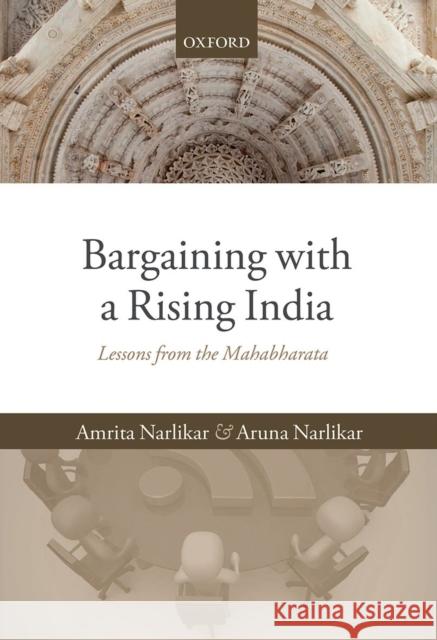Bargaining with a Rising India: Lessons from the Mahabharata » książka
Bargaining with a Rising India: Lessons from the Mahabharata
ISBN-13: 9780199698387 / Angielski / Twarda / 2014 / 246 str.
The need to negotiate effectively with India is only growing as its power rises. Understanding the negotiating culture wherein India's bargaining behaviour is embedded forms a crucial step to facilitate this process. In the literature on international negotiation, experimental studies point to specific behavioural characteristics of Indian negotiators. Empirical analyses confirm these findings, and many suggest that the sources of India's negotiation behaviour are deep-rooted and culture-specific, going beyond what standard explanations of interest group politics, partisan politics, or institutional politics would suggest. But there are very few works that trace these sources. Extensive sociological and anthropological, and comparative political studies remain confined to their own fields, and do not develop their implications for Indian foreign policy or negotiation. There is a conspicuous lack of works that attempt to unpack the "negotiating culture" variable using literary sources. This book aims to fill both these gaps. It focuses on India's negotiating traditions through the lens of the classical Sanskrit text, the Mahabharata, and investigates the continuities and changes in India's negotiation behaviour as a rising power.











